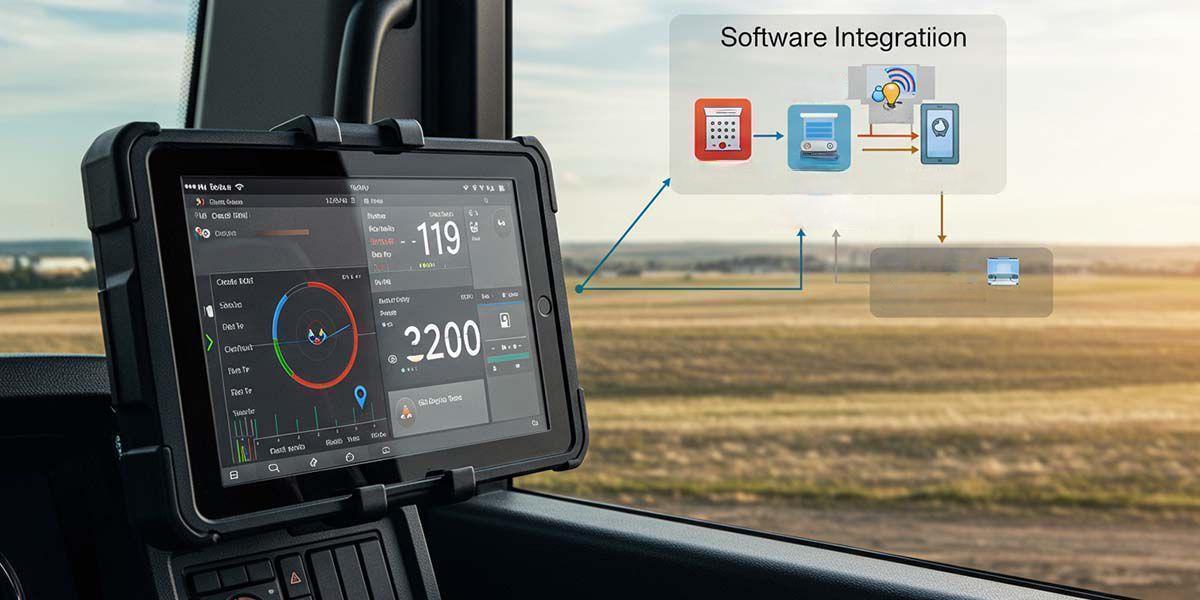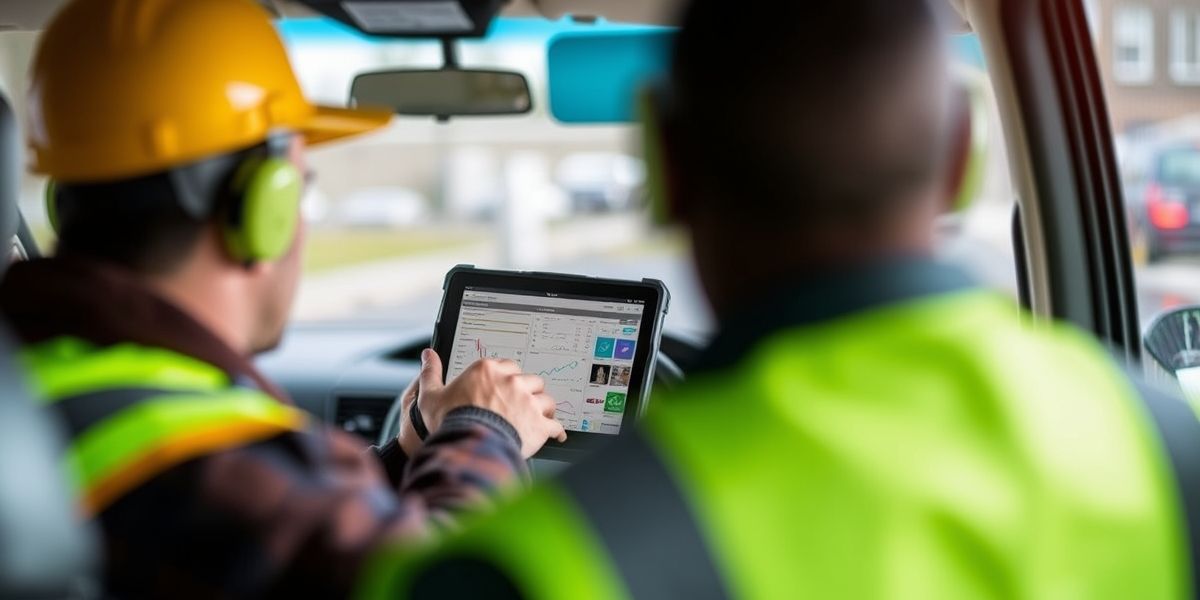The Importance of Software Integration in Vehicle-Mounted Rugged Tablets: The Key to Ensuring Data Accuracy
In modern fleet management, vehicle-mounted rugged tablets have become indispensable tools. These devices can operate reliably in harsh environments, collecting and transmitting critical data in real time. However, hardware performance alone is only part of the success—software integration is the core element that ensures data accuracy and enhances operational efficiency. This article explores the importance of software integration, with a particular emphasis on its profound impact on data accuracy.

photo from internet
Why Is Software Integration Crucial?
Software integration refers to the seamless connection of vehicle-mounted rugged tablets with fleet management software, transportation management systems (TMS), and other enterprise platforms. This integration ensures smooth data flow between different systems, avoiding common issues found in traditional operations.
- Real-Time Data Synchronization: Integration allows vehicle locations, driver behavior, and cargo status to be automatically updated in the management system, enabling managers to access the latest information without relying on delayed manual reports.
- Reduction of Human Errors: Manual data entry is prone to mistakes. Software integration automates processes, significantly improving data reliability and accuracy, thereby preventing decision-making errors caused by human errors.

photo from internet
How Does Data Accuracy Impact Fleet Management?
Data accuracy is the foundation of fleet management decisions, directly affecting operational efficiency, cost control, and customer satisfaction. Software integration plays a key role in ensuring data accuracy, with the following specific benefits:
- Optimized Route Planning: Accurate vehicle location tracking and real-time traffic data enable managers to dynamically adjust routes, reducing delays and fuel consumption.
- Enhanced Customer Experience: Precise delivery time predictions and cargo status updates build customer trust, leading to higher satisfaction levels.
- Ensuring Compliance and Safety: Accurate records of driving hours and vehicle maintenance data help businesses comply with regulations and prevent safety risks caused by data inaccuracies.
Studies show that inaccurate data can increase fleet operating costs by up to 15%. Through software integration, these risks can be minimized, bringing significant economic benefits to enterprises.
Case Study: The Impact of Data Accuracy
A large logistics company once faced frequent delivery delays and customer complaints due to data synchronization delays. By integrating vehicle-mounted rugged tablets with their TMS system, they achieved real-time data sharing. The results? Data accuracy improved by 90%, on-time deliveries increased by 25%, and customer satisfaction saw a significant boost. This case clearly demonstrates how software integration, by enhancing data accuracy, translates into tangible business success.

photo from internet
Conclusion
In fleet management, software integration is not just a technological upgrade but a critical component for ensuring data accuracy and operational success. The true value of vehicle-mounted rugged tablets largely depends on their seamless connection with management systems.
评论
发表评论